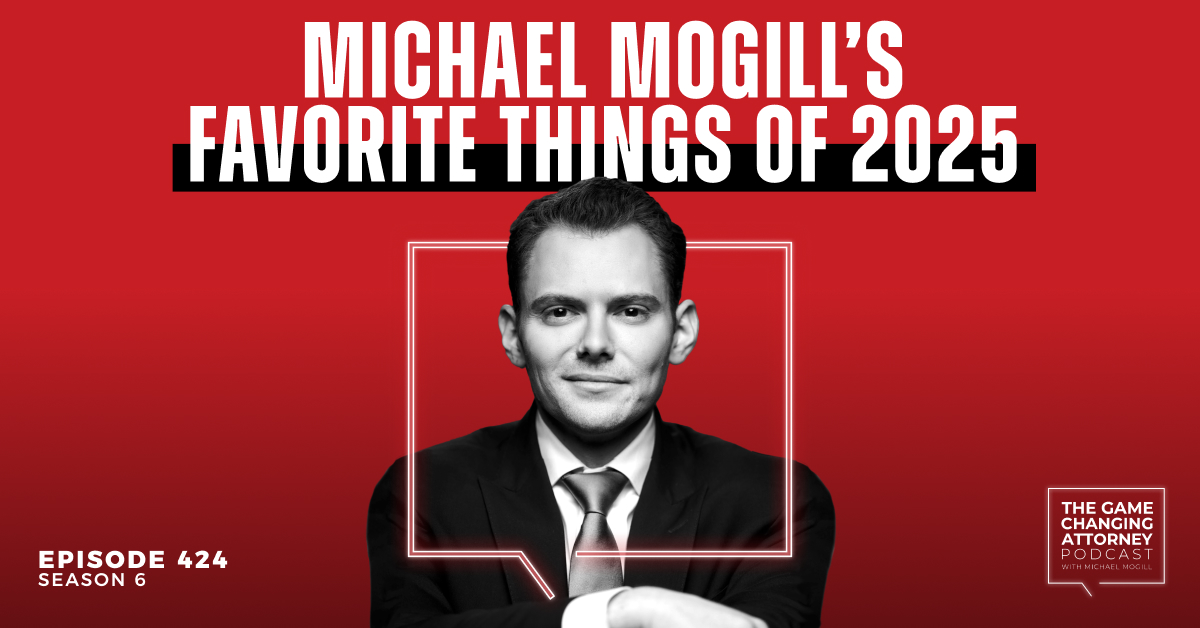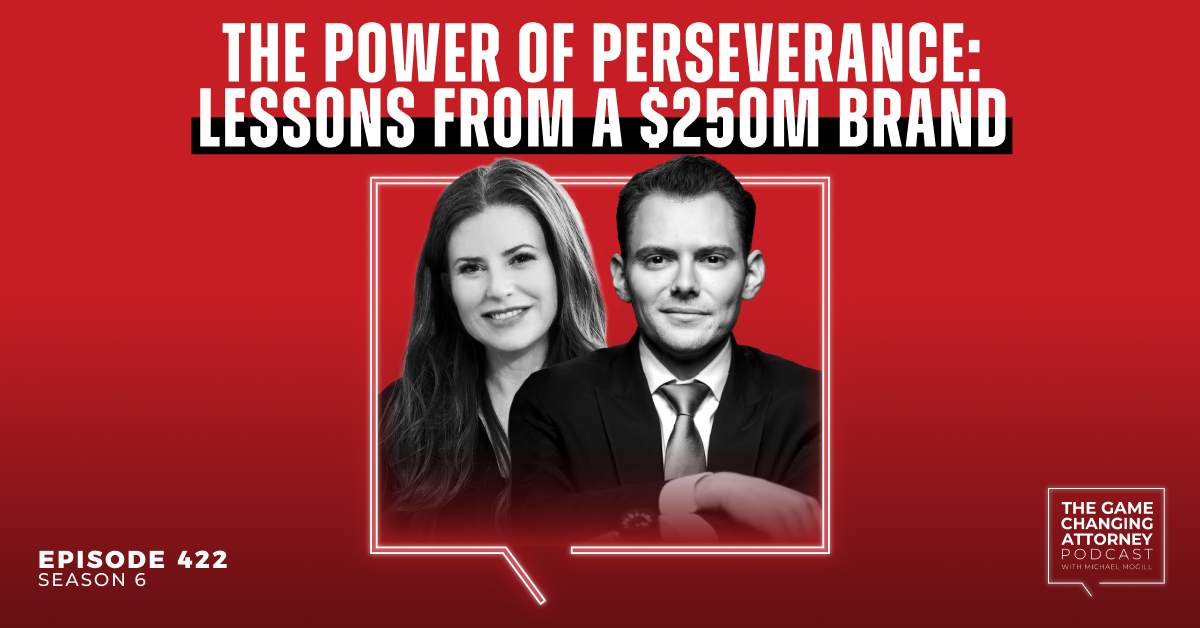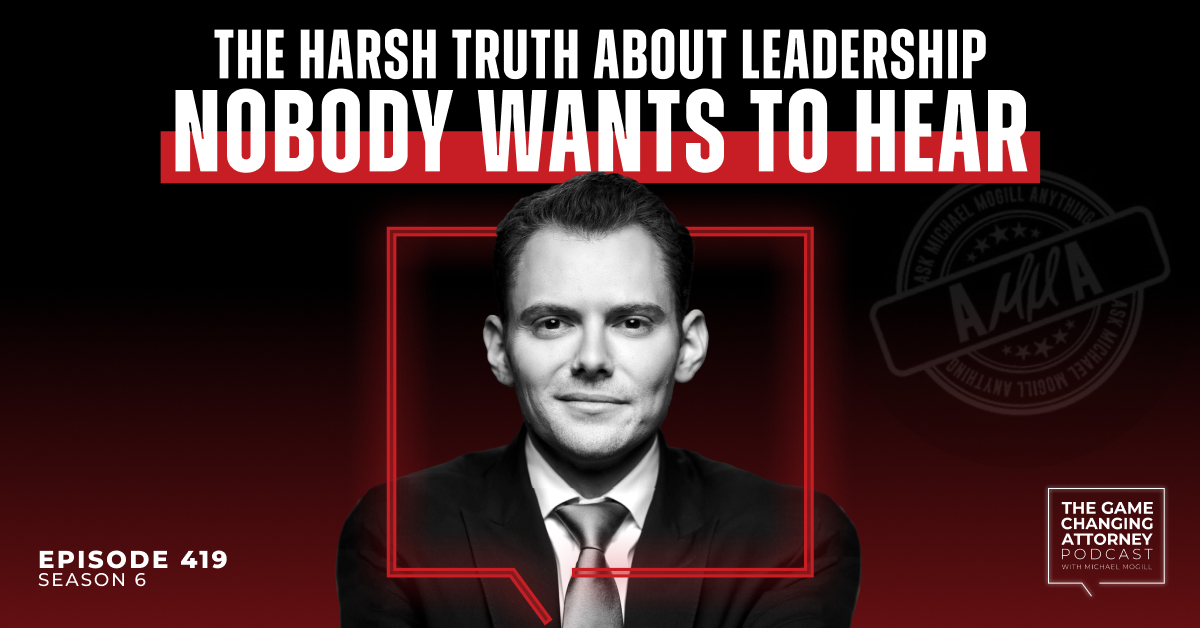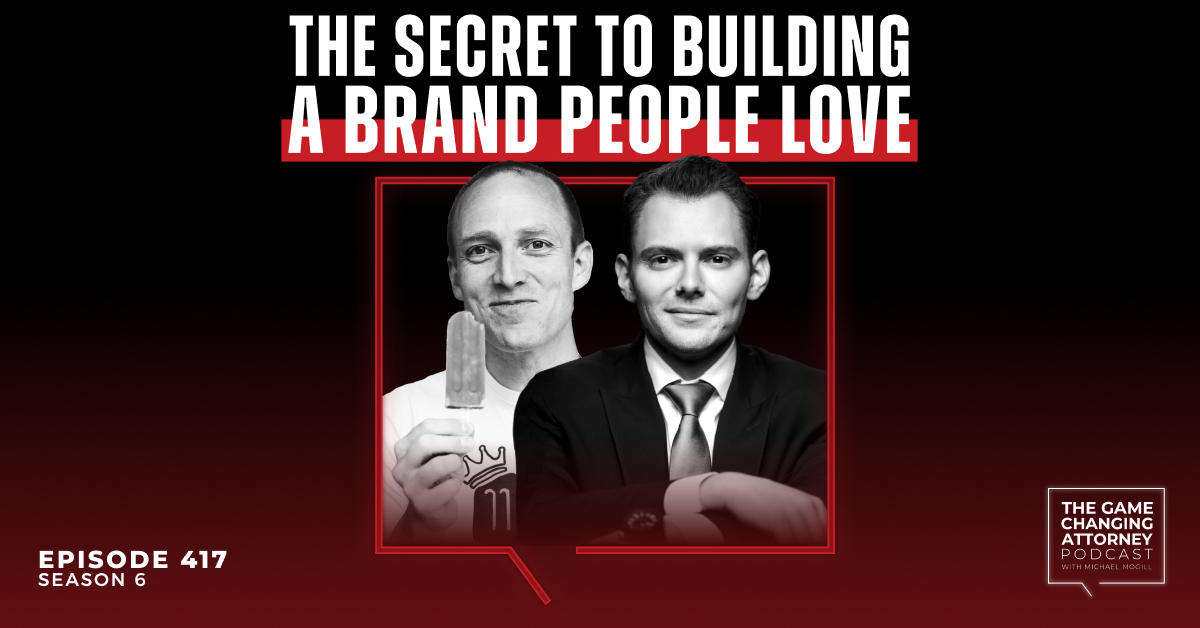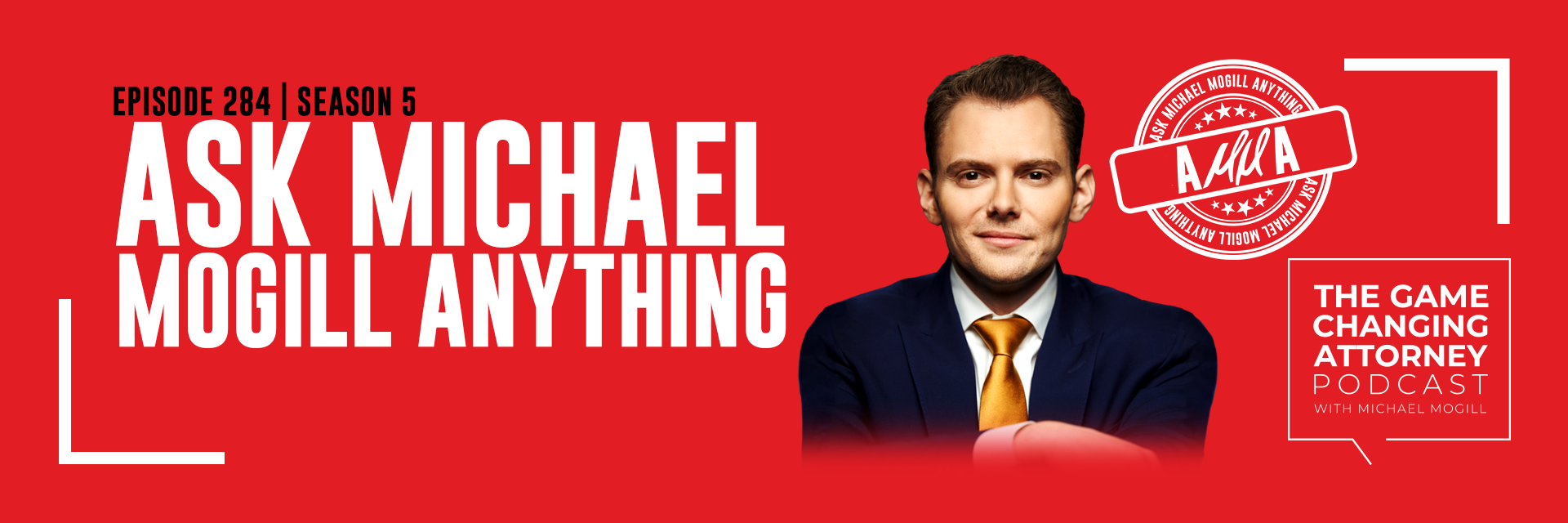
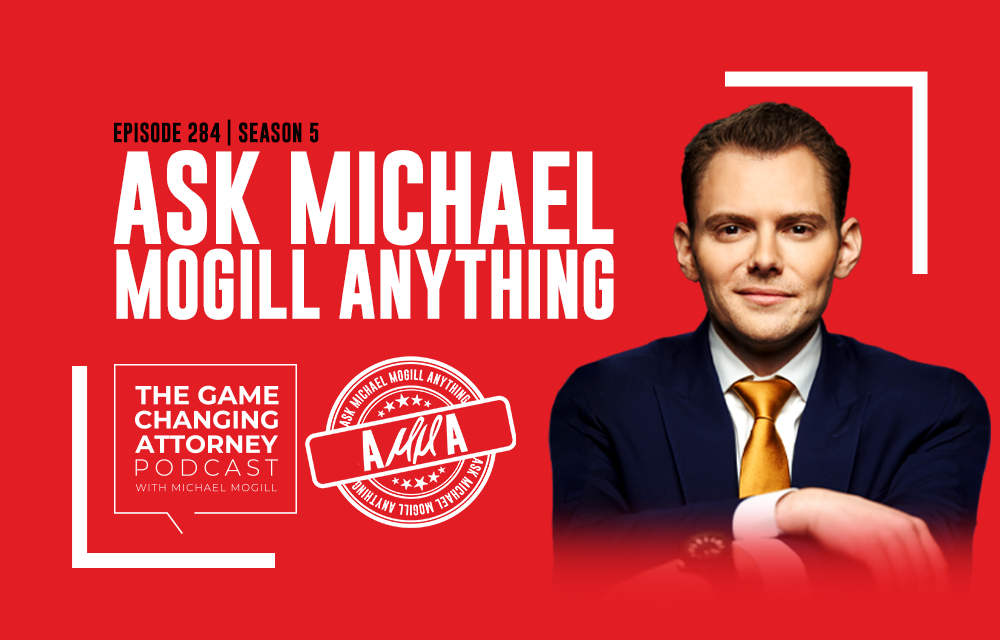
Episode 284 — AMMA — Elevate Your Leadership with Emotional Intelligence
What if your inability to manage emotions is the silent killer of your leadership potential?
Michael Mogill has mastered the art of emotional intelligence, and he’s here to share his secrets.
From balancing empathy with high performance standards to maintaining control during times of uncertainty, Mogill’s insights are not just strategies — they’re lifelines for any leader navigating today’s high-stress environments.
In this episode of The Game Changing Attorney Podcast, Michael and Jessica Mogill reveal:
- The 24-Hour Rule that can transform your decision-making process
- How to lead with empathy without compromising accountability
- Techniques to ensure your team looks to you for guidance and reassurance during uncertain times
Don’t let your lack of emotional intelligence be the downfall of your law firm. Tune in now and elevate your leadership game.
Listen & Subscribe
Show Notes:
The 24-Hour Rule. “Sometimes, when you encounter a situation that rubs you the wrong way, it’s better to pause and sleep on it before responding. Instead of reacting immediately, give yourself time to see how you feel the next day. Often, I come across something that emotionally triggers me, and I feel bothered. I could respond to that email or Slack message right away, but I recognize that my current flustered state might not produce the best response, so I wait 24 hours. Sometimes, I even type out the message and refrain from hitting send. When I review it 24 hours later, I often realize that my initial reaction was overblown. It wasn’t a big deal after all. Often, the situation is simply a misunderstanding. Asking a question like, ‘What did you mean by that?’ can quickly resolve any confusion. If you don’t have 24 hours, then use the 12-Hour Rule. If you don’t have 12 hours, use the One-Hour Rule. You always have some time. Even a brief pause can help ensure an issue doesn’t get unnecessarily worse.”
Sympathy vs. empathy. “I think people sometimes confuse empathy with sympathy. Sympathy is when you hear about someone’s situation and respond with, ‘I feel so sorry for you,’ or, ‘Oh, you poor thing.’ It’s a kind of pity. Empathy, on the other hand, is about putting yourself in someone else’s shoes and saying, ‘I imagine that’s difficult.’ You feel for them without pitying or victimizing them. Empathy means recognizing that we’re all human and navigating our own challenges. Everyone goes through difficult times, and you never know what’s happening in someone’s life. In a professional relationship, I can empathize with the fact that you’re experiencing a tough time. I understand that because I’ve been through difficult times myself, and I know others who have as well. However, empathy also involves asking, ‘What is our plan for getting this done, and how can I support you?’ I empathize and want to help, but I won’t lower my standards and allow someone to victimize themself.”
Calm is contagious. “If you’re freaking out, stressed, exhausted, and constantly reacting instead of responding, how can you expect anyone to have confidence in you as a leader? When you lose your temper and control, you undermine the sense of stability and trust within your team. If your employees don’t have confidence in your leadership, their next step is likely to Indeed.com. They will start looking for other opportunities because they depend on your organization for their livelihood, to support their families, pay rent, bills, and buy groceries. If they perceive the business as unstable because their leader is frequently losing control, they’ll feel insecure about their future with the organization. If you want to have — let alone retain — your team’s trust and commitment, you need to provide them with a sense of security. Start by maintaining your own composure.”
Lead yourself. “Years ago, I worked at a company where I aspired to grow within the organization. I remember observing the CEO, who was cheating on their spouse, struggling with alcoholism, and overall in terrible shape. Witnessing this made me question my desire to advance within that company. I thought, ‘If that’s what it looks like at the top, no thanks.’ Contrast this with a leader who embodies the qualities worth striving for. It starts with leading yourself — keeping your promises to yourself and others, being consistent every day, from Monday to Sunday. By doing this day after day, month after month, and year after year, you build a foundation of trust and reliability. During difficult times, people will look to you for guidance. If you’re calm, responsive rather than reactive, transparent, vulnerable, and authentic, it makes a significant impact. The best way to maintain control is to take care of yourself first, ensuring you don’t bring personal issues into the office. As a leader, it’s crucial not to let your personal struggles affect your professional responsibilities. Your personal chaos should never become your team’s crisis.”
Connect with Michael
- Text directly at 404-531-7691
